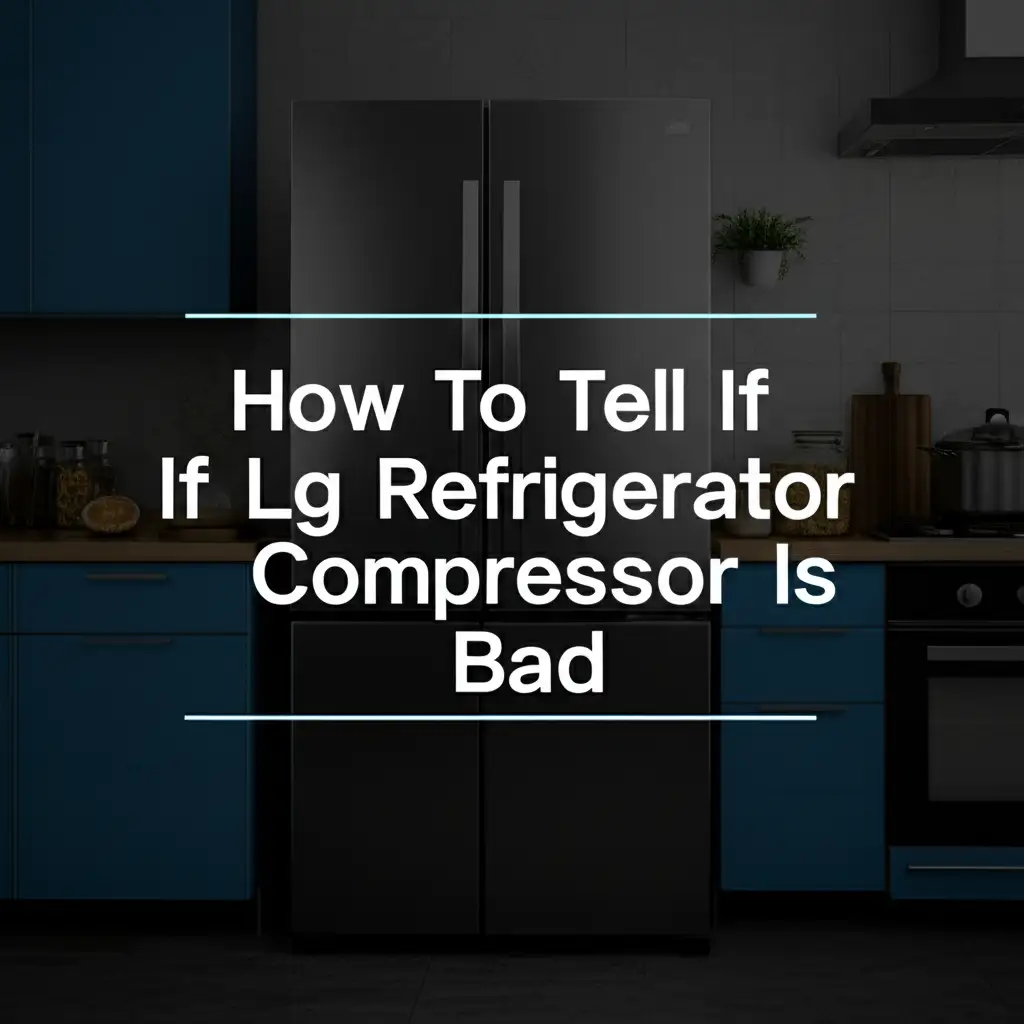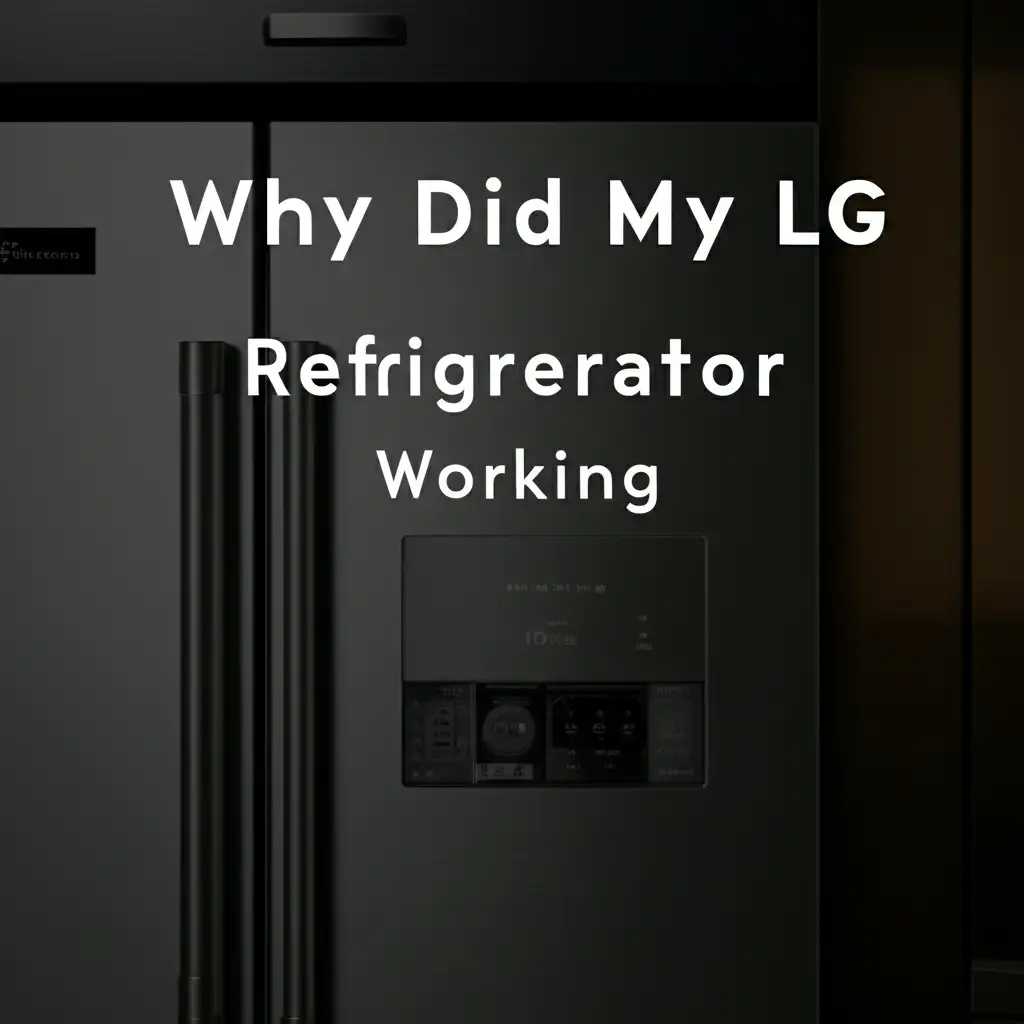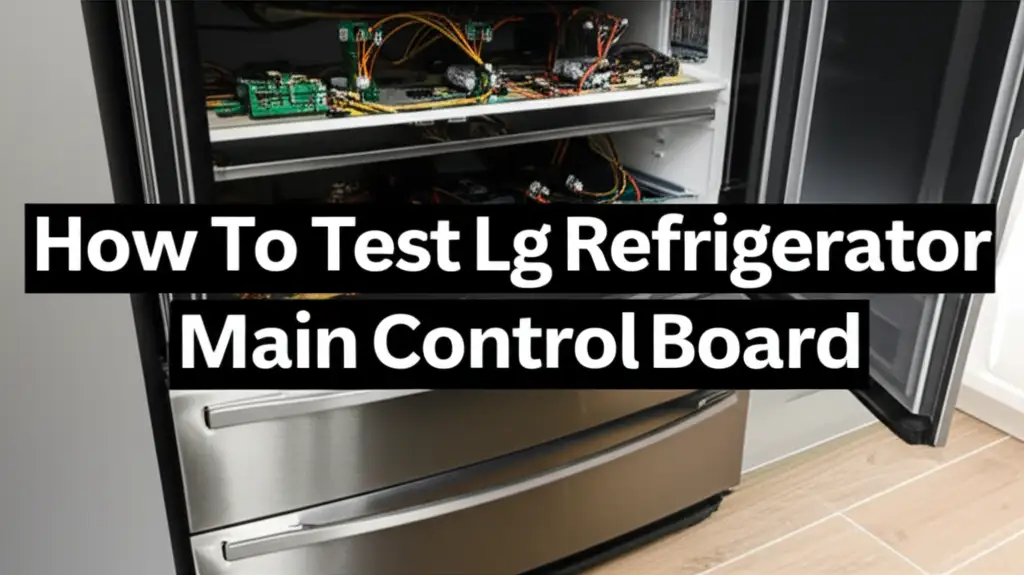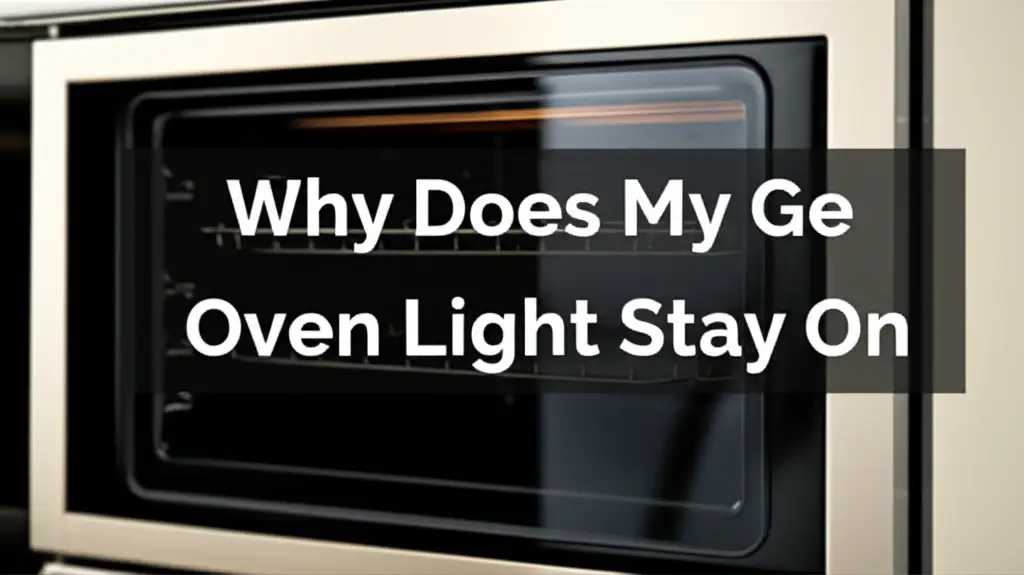· Katria Melrose · Appliance Repair · 15 min read
How To Tell If Lg Refrigerator Compressor Is Bad

Spotting a Bad LG Refrigerator Compressor: Your Guide
Is your LG refrigerator no longer cooling like it should? Perhaps it makes strange noises, or food spoils too quickly. These issues often point to a failing compressor. Knowing how to tell if an LG refrigerator compressor is bad can save you time and money.
The compressor is the heart of your refrigerator’s cooling system. When it malfunctions, your entire appliance suffers. This guide helps you identify the key symptoms of a bad LG refrigerator compressor. We will explore common signs, walk you through diagnostic steps, and discuss your next actions. You will gain clarity on what might be wrong with your fridge.
Takeaway
- Listen for unusual noises, such as clicking, humming, or silence.
- Check if your refrigerator or freezer is not cooling food correctly.
- Feel the compressor area for excessive heat or unusual vibrations.
- Perform simple diagnostic checks, like power cycling the appliance.
- Consider professional help if you suspect a compressor failure.
Clear Indicator of a Bad LG Compressor
You can tell if an LG refrigerator compressor is bad by observing primary symptoms. These include a refrigerator that does not cool, often accompanied by unusual clicking or humming sounds from the back of the unit, or a complete lack of noise and cooling, indicating a total failure.
Understanding the LG Refrigerator Compressor: What It Does
The compressor is a vital component in your LG refrigerator. It moves refrigerant through the cooling system. Think of it as the heart that circulates blood. The compressor pressurizes the refrigerant gas. This high-pressure gas then travels to the condenser coils.
In the condenser coils, the refrigerant releases heat into your kitchen. It turns into a high-pressure liquid. This liquid then flows through an expansion device. This device reduces its pressure, making it cold. The cold liquid then enters the evaporator coils inside the refrigerator.
As the cold liquid passes through the evaporator coils, it absorbs heat from inside the fridge. This makes your food cold. The refrigerant then turns back into a low-pressure gas. It returns to the compressor to restart the cycle. A properly functioning compressor ensures your LG refrigerator maintains the correct temperature. Without it, your food will warm up quickly.
Many LG refrigerators use linear compressors. These are known for their efficiency and quiet operation. However, they can also fail over time. When a linear compressor malfunctions, it impacts the entire cooling process. Understanding its role helps you pinpoint issues more effectively. A healthy compressor runs smoothly, ensuring consistent cooling performance for your LG appliance.
Common Signs Your LG Refrigerator Isn’t Cooling Properly
One of the most obvious signs of a bad LG refrigerator compressor is a lack of cooling. You might notice your food spoiling faster. Milk or juice may feel lukewarm. The freezer compartment might not be freezing items solid. This directly indicates a problem with the cooling cycle.
First, check the temperature settings. Ensure they are correct for your needs. Sometimes, someone accidentally changes the settings. If settings are fine, but cooling is poor, the compressor is a prime suspect. I remember a time my own fridge felt warm inside, and I immediately thought of the compressor. It is crucial to address this quickly to save your groceries.
You might also observe ice cream being soft or melting in the freezer. Ice cubes may stick together or appear smaller than usual. The ice maker might produce less ice or stop working entirely. For instance, if you are wondering how to get LG refrigerator to make more ice and it is not, a bad compressor could be the root cause. This suggests the refrigerant is not circulating or compressing properly.
Beyond the compressor, other issues can cause poor cooling. A faulty evaporator fan motor might prevent cold air distribution. Blocked condenser coils can also reduce cooling efficiency. A problem with the defrost system could lead to ice buildup, blocking airflow. However, if you notice poor cooling along with strange noises or the compressor not running, a compressor issue becomes more likely. Checking for these additional symptoms helps narrow down the problem.
Unusual Noises: A Key Indicator of Compressor Issues
A healthy LG refrigerator compressor usually runs quietly. You might hear a gentle hum during its operation. However, a failing compressor often announces its distress with unusual sounds. Paying attention to these noises can provide early warnings. This helps you diagnose the problem before it worsens.
One common sound is a loud clicking noise. This often comes from the start relay trying to engage the compressor. If the compressor is failing, it draws too much current. The start relay clicks off to protect the electrical system. This clicking can happen repeatedly, especially if the compressor tries to start and fails. I once heard this clicking from my fridge, and it was a clear signal something was wrong.
You might also hear a loud humming or buzzing sound. This could indicate the compressor motor is struggling. It might be trying to run but cannot reach its operating speed. A failing motor winding or internal mechanical issue can cause this. The sound might be constant or intermittent. It often sounds louder than the normal compressor hum.
Another troubling sign is silence. If your LG refrigerator is completely silent and not cooling, the compressor might not be running at all. This could mean a total compressor failure. It might also be a problem with the start relay, control board, or power supply. If you suspect the compressor is not engaging, verify the refrigerator has power. Check if other components, like the interior light, still work. No noise from the compressor at all suggests a critical failure.
Sometimes, noises can also come from other parts. The evaporator fan motor, condenser fan, or even the water inlet valve can make noise. However, sounds from the lower back of the refrigerator, where the compressor is located, often point to the compressor itself. Distinguishing between these noises helps ensure you correctly identify the source of the problem.
Physical Symptoms: Heat, Vibrations, and Electrical Problems
A malfunctioning LG refrigerator compressor often exhibits physical signs. These signs can be felt or observed. Checking these symptoms can provide further confirmation of a compressor issue. It helps you understand the extent of the problem.
First, check the temperature of the compressor. The compressor is located at the back of your refrigerator, usually near the bottom. It is normal for the compressor to be warm to the touch during operation. However, an excessively hot compressor indicates a problem. If it feels extremely hot, almost burning, it suggests the compressor is working too hard or has an internal fault. Overheating can damage the motor windings. This ultimately leads to compressor failure.
Next, observe vibrations. A normally operating compressor produces a slight vibration. This is due to its internal moving parts. However, excessive vibration can be a sign of trouble. Strong, rattling, or shaking vibrations might indicate worn internal components. It could also mean the compressor is loose from its mounting. These vibrations can cause more wear and tear over time. They might also lead to louder operational noises.
Electrical problems are also linked to a bad compressor. A faulty compressor might trip the circuit breaker. This happens if it draws too much current during startup or operation. You might notice the refrigerator losing power repeatedly. This is a protective measure by your home’s electrical system. If your fridge keeps tripping the breaker, it is a serious sign. It warrants immediate investigation.
Finally, check the condenser coils. While not a direct compressor symptom, dirty coils can make the compressor work harder. This leads to overheating and premature failure. You should regularly clean under a refrigerator and its condenser coils. This helps maintain efficiency. If the coils are extremely dirty, the compressor might be struggling more than it should. This extra strain can shorten its lifespan.
Diagnostic Steps: Testing Your LG Refrigerator Compressor
Once you suspect your LG refrigerator compressor is bad, some diagnostic steps can help confirm it. These steps usually require basic tools and careful observation. Always unplug the refrigerator before working on internal components. Safety is paramount when dealing with electrical appliances.
First, perform a simple power cycle. Unplug the refrigerator from the wall outlet. Wait for about 5-10 minutes. Then, plug it back in. This can sometimes reset the compressor’s internal overload protector. If the compressor starts working again, it might have been a temporary issue. However, if it stops cooling again soon, the problem persists.
Next, listen to the compressor. Plug the refrigerator back in and listen closely to the compressor area. A healthy compressor should hum steadily. If you hear a series of clicks every few minutes without the compressor running, it indicates the start relay is attempting to start the compressor but failing. This is a strong sign of a bad compressor or start relay.
You can also check the start relay and capacitor. These components are usually attached to the compressor. A faulty start relay or capacitor can prevent the compressor from starting. Visually inspect them for signs of damage like burn marks or bulging. You can use a multimeter to test their continuity and capacitance if you are comfortable with electrical testing. A bad start relay often mimics compressor failure symptoms. However, replacing a start relay is far simpler and cheaper than replacing the compressor.
For more advanced diagnostics, you might need a clamp meter to measure current draw. A compressor that draws excessive current during startup or running indicates an internal short or mechanical issue. Conversely, a compressor drawing very little or no current when it should be running indicates an open circuit. This requires professional expertise. Remember, working with refrigeration systems and electrical components can be dangerous. If you are not confident, it is always best to seek professional help. Some of these diagnostic steps apply to other compressors too; for example, understanding how to clean an AC compressor involves similar principles of maintaining the external unit.
Distinguishing Compressor Failure from Other Fridge Problems
It is easy to misdiagnose a bad LG refrigerator compressor. Many other refrigerator components can cause similar symptoms. Knowing the differences helps avoid unnecessary repairs. This ensures you target the actual problem.
A common issue is a faulty fan motor. Your refrigerator has an evaporator fan inside the freezer and a condenser fan near the compressor. If the evaporator fan fails, cold air cannot circulate into the fresh food compartment. This makes the fridge warm. If the condenser fan fails, the compressor overheats because it cannot dissipate heat. Listen for fan noises. If you hear no fan noise but the compressor is humming, a fan motor could be the culprit.
Defrost system issues can also mimic compressor problems. If the defrost heater, thermostat, or control board fails, ice can build up on the evaporator coils. This blocks airflow, preventing proper cooling. You might notice excessive ice buildup in the freezer. The refrigerator will feel warm. A bad defrost system typically means the compressor is still running, but the cooling effect is diminished by ice. Sometimes, you might even find your LG refrigerator leaking water from the bottom due to a clogged defrost drain line caused by ice buildup.
Refrigerant leaks are another possibility. If the sealed system has a leak, the compressor might run continuously. It will try to reach the set temperature but fail due to insufficient refrigerant. This results in poor cooling. You might also notice a hissing sound or oily residue near the coils if there’s a leak. However, refrigerant leaks are hard to detect without specialized equipment.
The control board can also be an issue. A faulty control board might not send power to the compressor. This would prevent it from starting. If the compressor, fans, and defrost system all seem fine, the control board might be the problem. However, control board failures often present with multiple unrelated symptoms. These symptoms include lights not working, dispenser issues, or incorrect display readings.
Always check simpler issues first. Ensure the refrigerator doors seal properly. A bad door gasket can let in warm air, making the compressor work overtime. Also, make sure the refrigerator has enough space around it for proper ventilation. Blocked vents can also impede cooling. Checking these small things first can save you from a major repair.
What to Do Next: Repair Options and Professional Help
If you have diagnosed a bad LG refrigerator compressor, you face a significant decision. Compressor replacement is a complex and costly repair. It typically requires specialized tools and expertise. You have a few options to consider before moving forward.
First, consider the refrigerator’s age. If you are unsure how to tell how old your LG refrigerator is, check its serial number. Many LG compressors, especially linear compressors, come with a 10-year warranty. If your refrigerator is within this warranty period, contact LG customer service immediately. They might cover the repair or replacement of the compressor. This could save you a substantial amount of money.
If the refrigerator is out of warranty, you must weigh the repair cost against replacement. Replacing a compressor can cost hundreds of dollars, sometimes approaching the price of a new refrigerator. Get multiple quotes from certified appliance repair technicians. Ask for a breakdown of parts and labor costs. Compare this total cost to the price of a new refrigerator. A general rule is if the repair cost exceeds 50% of a new appliance’s price, replacement is often the more sensible option.
Attempting a DIY compressor replacement is not recommended for most homeowners. This job involves working with refrigerants, which are hazardous. It also requires special equipment like a vacuum pump and manifold gauges. Improper handling of refrigerants is illegal and harmful to the environment. It can also cause severe personal injury. The sealed system also needs to be evacuated and recharged correctly. A mistake can lead to further damage.
Hiring a professional technician is the safest and most reliable choice. Look for technicians experienced with LG appliances, particularly linear compressors. They have the knowledge and tools to diagnose the issue accurately and perform the repair safely. Ask for references or check online reviews before hiring. A professional can also advise you if repair is truly cost-effective or if buying a new refrigerator is a better investment. This ensures your appliance gets the right attention it needs.
FAQ Section
How long do LG refrigerator compressors typically last?
LG refrigerator compressors, especially linear models, are designed to last about 10 years. Many come with a 10-year warranty from LG. However, their lifespan can vary based on usage, maintenance, and environmental factors. Proper care, like cleaning condenser coils, can extend their life.
Can a bad start relay mimic a bad compressor?
Yes, a bad start relay can mimic compressor failure. It prevents the compressor from receiving the necessary power to start. You might hear clicking sounds as the relay attempts to engage the compressor. Replacing the start relay is much cheaper and easier than replacing the compressor.
Why is my LG refrigerator making a loud clicking sound?
A loud clicking sound often means the compressor’s start relay is trying to engage the compressor but failing. This happens if the compressor is faulty or drawing too much power. The relay clicks off to prevent damage. This is a strong indicator of a compressor issue.
Is it worth replacing a bad LG refrigerator compressor?
It depends on the refrigerator’s age and the repair cost. If your refrigerator is still under the 10-year compressor warranty, it is usually worth replacing. If out of warranty, compare the repair cost to a new fridge’s price. If repair is more than 50% of new cost, replacement is often better.
What causes an LG refrigerator compressor to fail?
Compressors can fail due to various reasons. These include electrical problems like power surges, mechanical wear and tear over time, overheating from dirty condenser coils, or issues within the sealed refrigerant system, such as leaks. Manufacturing defects can also occur, especially in earlier linear compressor models.
Can I replace the LG refrigerator compressor myself?
No, it is not recommended for homeowners to replace a refrigerator compressor. This job requires specialized tools for handling refrigerants, which are hazardous and require proper disposal. Incorrect installation or refrigerant handling can cause severe injury or further damage to the appliance. Always hire a certified technician.
Conclusion
Understanding how to tell if an LG refrigerator compressor is bad is a crucial skill for any homeowner. You now know to look for clear signs like a lack of cooling, unusual noises, and excessive heat or vibrations. My own experience with appliance troubles taught me that early detection can make a big difference. These symptoms are strong indicators that your LG refrigerator’s heart might be struggling.
While other components can cause similar issues, observing a combination of these signs points strongly to the compressor. Always remember to prioritize safety during any diagnostic steps. If you identify a failing compressor, assess the situation carefully. Consider the refrigerator’s warranty status and the cost of repair versus replacement. A professional appliance technician is best equipped to handle complex compressor repairs safely and effectively. Addressing the issue promptly ensures your food stays fresh and your home remains functional. Don’t let a bad compressor spoil your day – take action with confidence.
- LG refrigerator repair
- compressor troubleshooting
- fridge not cooling





